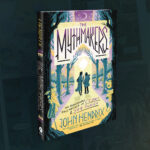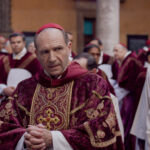Reading good books is essential for the cultivation of Christian wisdom. It’s an obvious enough point, but it bears repeating. “It matters a good deal that your book-food be strong meat,” Amy Carmichael wrote (in one of the books highlighted below). “We are what we think about.”
Indeed, we’ll only become wise people if we have a diet rich in the nutrients of wisdom. We are what we eat. This is the central idea of my book The Wisdom Pyramid, which includes a chapter on why books are vital for our “wisdom diet”—and which sorts we should be reading.
Reading good books is essential for the cultivation of Christian wisdom.
On that point, I thought I’d offer a list of books I’ve personally found to be wisdom-rich. There are countless I could have included here, but to limit myself I’m focusing on shorter books (arbitrarily defined as less than 225 pages), even though I heartily recommend making time for daunting, long books too! The selections below are also limited to nonfiction, though I could easily offer a similar list of wisdom-rich fiction (and maybe I will, at some point).
Some of the 50 books below—listed in chronological order of publication—are “classics.” Others are newer, lesser-known, or newly edited volumes collating a sampling of an established sage’s wisdom. I certainly don’t agree with every word in all of these books, but that doesn’t mean I haven’t learned much from them. They’re all books that have shaped me in my love of God and his Word and my understanding of his world.
Perhaps pick up a few of them for summer reading—you won’t be disappointed!
Athanasius, On the Incarnation (fourth century). Timeless, beautiful wisdom on one of the bedrock (yet mysterious) doctrines of God. 110 pages.
John Chrysostom, On Marriage and Family Life (fourth century). Wisdom on the theology, mystery, and meaning of the marriage sacrament. 114 pages.
Augustine of Hippo, On Christian Teaching (fifth century). Wide-ranging Christian wisdom from one of the church’s greatest thinkers. 208 pages.
Thomas à Kempis, The Imitation of Christ (15th century). Classic devotional wisdom on loving Christ and living like him. 144 pages.
Richard Sibbes, The Bruised Reed (1630). Encouraging wisdom for the weak, weary pilgrim to pursue Christ confidently, knowing the nature of his heart. 160 pages.
John Owen, The Glory of Christ (1684). Puritan wisdom that rehearses the inexhaustible glories of Christ and invites the reader to bask in them. 184 pages.
Brother Lawrence, The Practice of the Presence of God (1692). Tidbits of wisdom from a humble Carmelite monk on cultivating awareness and utterly treasuring God’s presence. 42 pages.
Richard Baxter, Walking with God (17th century). Puritan wisdom on the nature and practice of intimacy with God. 86 pages.
Frederick Douglass, Narrative of the Life of Frederick Douglass (1845). The wisdom of unflinching, necessary bearing witness to history some would like to forget. 160 pages.
G. K. Chesterton, Orthodoxy (1908). Classic, pithy wisdom in defense of Christianity in a skeptical modern age. 170 pages. See also: Trevin Wax’s new annotated edition.
Martin Buber, I and Thou (1923). Wisdom on the sacred, God-created alchemy of relationships, memorably distinguished between I-It and I-Thou relations. 132 pages.
J. Gresham Machen, Christianity and Liberalism (1923). The wisdom of steadfast defense of orthodoxy against the encroachments and mutations of liberal Christianity. 200 pages.
Dietrich Bonhoeffer, Life Together (1939). Wisdom on the beauty, necessity, and challenge of Christian community. 122 pages.
C. S. Lewis, The Weight of Glory (1941). Wisdom you won’t know you need until you read it; the single most life-changing essay I’ve ever read. 208 pages.
Dorothy Sayers, The Mind of the Maker (1941). Wisdom on how the creative life provides insight into the nature of God. 206 pages.
C. S. Lewis, The Abolition of Man (1943). Wisdom on where to find (and not find) truth—one of the timeliest texts for our “post-truth” moment. 128 pages.
Simone Weil, Gravity and Grace (1947). Pascal-type pearls of wisdom on Christian spirituality, full of unexpected epiphanies and novel connections. 224 pages.
Carl Henry, The Uneasy Conscience of Modern Fundamentalism (1947). Foundational wisdom for evangelicals committed to defending the unchanging gospel but also applying it to all of life. 112 pages.
Josef Pieper, Leisure: The Basis of Culture (1948). Compelling case for the wisdom to be found in leisure, rest, and senses with the capacity to perceive beauty. 144 pages.
Amy Carmichael, That Way and No Other (mid-20th century). New collection of wisdom nuggets from one of Christian history’s most faithful missionaries. 144 pages.
Abraham Heschel, The Sabbath (1951). Elegant wisdom on the “architecture of time” that is the Sabbath. 144 pages.
J. I. Packer, Fundamentalism and the Word of God (1958). Wisdom in defense of our greatest (by far) source of wisdom: God’s inerrant Word. 191 pages.
C. S. Lewis, A Grief Observed (1961). The wisdom of deeply felt grief on account of deeply committed love. 76 pages.
A. W. Tozer, The Knowledge of the Holy (1961). Wisdom toward the end of loving God more by knowing his majestic attributes. 128 pages.
Martin Luther King Jr., Letter From Birmingham Jail (1963). Prophetic wisdom on race, justice, natural law, and civil disobedience. 64 pages.
Francis Schaeffer, The God Who Is There (1968). The wisdom of recognizing Christianity’s uniqueness—and appeal—in the modern world. 191 pages.
Jaques Ellul, The Meaning of the City (1970). Heady but worthwhile wisdom on the theological significance of cities in the biblical narrative. 209 pages.
Madeleine L’Engle, Walking on Water (1972). Eloquent wisdom on the relationship between art and faith. 224 pages.
Helen Roseveare, Living Sacrifice (1979). Wisdom born of strife and service, in defense of sacrifice as a key to joy. 144 pages.
Eugene Peterson, A Long Obedience in the Same Direction (1980). The wisdom of faithful plodding and durable obedience in a world of fads, fickle attachments, and short attention spans. 220 pages.
Neil Postman, Amusing Ourselves to Death (1985). Wisdom on the shaping effects of communication forms from a frighteningly prophetic media critic. 208 pages.
Cornelius Plantinga Jr., Not the Way It’s Supposed to Be: A Breviary of Sin (1996). Sober wisdom on the insidious nature of sin. 202 pages.
Alexander Schmemann, For the Life of the World (1997). Nuggets of wisdom about life, culture, and theology from an Orthodox Christian perspective. 151 pages.
Annie Dillard, For the Time Being (1999). Contemplative wisdom on the sad, strange, and wonderful mysteries of living in time. 224 pages.
Os Guinness, Prophetic Untimeliness (2005). The wisdom of clinging to eternal truth in a culture disposed to ephemeral fads. 128 pages.
Tim Keller, The Prodigal God (2011). The wisdom of excavating the gospel depths of a story Jesus tells. 192 pages.
Marilynne Robinson, When I Was a Child I Read Books (2013). Wisdom-filled essays on a variety of topics from one of the best living Christian writers. 224 pages.
N. D. Wilson, Death By Living (2013). The wisdom of living with joy, gratitude, and commitment in a world of decay and death. 208 pages.
Christian Wiman, My Bright Abyss (2014). Wisdom forged in the pressures of suffering and fighting for faith in a secular age. 182 pages.
Peter Leithart, Traces of the Trinity (2015). The wisdom of seeing signs of the Creator in his creation. 176 pages.
Pope Francis, Laudato Si: On Care of Our Common Home (2015). The best Christian wisdom I’ve encountered on the theological rationale for creation care. 176 pages.
Tish Harrison Warren, Liturgy of the Ordinary (2016). The wisdom of seeing the sacred in the everyday stuff of life. 184 pages.
James K. A. Smith, You Are What You Love (2016). The wisdom of knowing we’re shaped not just by what we think, but by how (and what) we worship. 224 pages.
Jen Wilkin, None Like Him (2016). Wisdom that helps us understand the attributes of God—who is himself Wisdom. 176 pages.
Jackie Hill Perry, Gay Girl, Good God (2018). The wisdom of trusting God’s power to transform us and of knowing his holiness is greater than our desires. 208 pages.
Megan Hill, A Place to Belong (2020). Wisdom that spurs us to love the local church—which is one of God’s greatest gifts for our wisdom. 184 pages.
Jay Kim, Analog Church (2020). Timely wisdom on embodied ecclesiology for an increasingly disembodied (and thus unwise) age. 216 pages.
Rebecca McLaughlin, The Secular Creed (2020). Wisdom that speaks with clarity to some of the most contentious, confusing issues of the day. 125 pages.
Dane Ortlund, Gentle and Lowly (2020). Wisdom found in contemplating the one who said of himself, “I am gentle and lowly in heart” (Matt. 11:29). 224 pages.
Hartmut Rosa, The Uncontrollability of the World (2020). Wisdom that recognizes joy as a grace to receive, not a prize to win, master, or manufacture. 140 pages.
Try Before You Buy: FREE Sample of TGC’s New Advent Devotional

Choosing the right Advent daily devotional can be tough when there are so many options. We want to make it easier for you by giving you a FREE sample of TGC’s brand-new Advent devotional today.
Unto Us is designed to help you ponder the many meanings of this season. Written by TGC staff, it offers daily Scripture readings, reflections, and questions to ponder. We’ll send you a free sample of the first five days so you can try it out before purchasing it for yourself or your church.

































